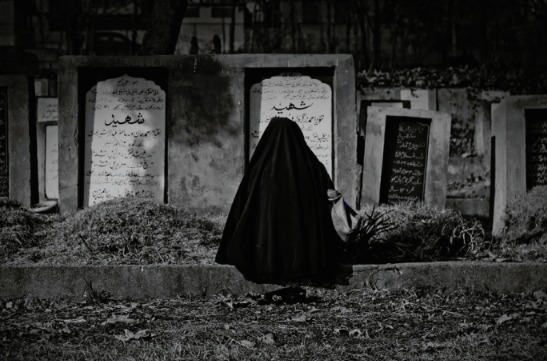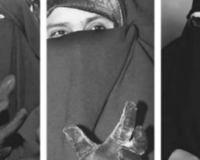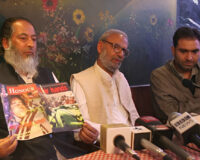As the world marks another International Women’s Day, the global spotlight turns towards acknowledging and celebrating the remarkable achievements, resilience, and contributions of women across the world. This annual observance, held on March 8th, serves as a reminder of the ongoing quest for gender equality and the empowerment of women worldwide. With each passing year, International Women’s Day not only celebrates the progress made but also prompts reflection on the persistent challenges and injustices that women face. This year, the United Nations has designated “Investing in Women: Accelerating Progress” as the overarching theme for International Women’s Day, which highlights the crucial need for global initiatives that empower women. However, in the region of Indian Occupied Jammu and Kashmir, the commemoration of this significant day is marked by a stark contrast to the global theme. Rather than a jubilant celebration, it serves as a reflection that casts a light on the enduring challenges and hardships faced by women in the area. International Women’s Day becomes, in this context, a solemn reminder of the ongoing struggles rather than an occasion for joyous festivity.
A haunting reality for many Kashmiri women is the existence of the Half-Widows”– women who live in a perpetual state of ambiguity and are unsure whether their husbands are dead or alive. The forced disappearances of Kashmiri men have left these women in a state of limbo, suspended between hope and despair. The absence of closure only deepens their emotional wounds and makes it an indescribable agony that the international community has largely overlooked.
The conflict in Kashmir has left an indelible mark on families, with mothers mourning the loss of their sons and sisters grieving for their brothers. The toll on these women, who are often the emotional pillars of their families, is immeasurable. The agony of not knowing the fate of their loved ones, coupled with the daily challenges of life in a conflict zone gives us a peep into the world of women living in the region and highlights as to how, despite remaining at the receiving end of state-sponsored violence, they have fought it with utmost valor and integrity.
One of the most reprehensible aspects of the conflict in Kashmir is the pervasive use of sexual violence against women. Hundreds of women have fallen victim to rape and sexual molestation, their lives forever scarred by the brutal tactics employed by the Indian occupational Army. This heinous crime goes beyond individual suffering; it is a deliberate strategy to instill fear, demoralize communities, and exert control. The world cannot turn a blind eye to the profound trauma endured by these women.
Numerous Kashmiri women have been jailed on fabricated charges or just for demanding the freedom of their homeland. The arbitrary detentions of these women not only infringe upon their basic human rights but also disrupt their lives, families, and communities. The psychological and emotional toll on these women, who are often arrested without clear charges or due process, is immeasurable. Families are left in distress and continue to grapple with the uncertainty surrounding the well-being and whereabouts of their loved ones.
For far too long, the international community has played the role of a mute spectator and averted its gaze from the plight of Kashmiri women. The world has witnessed their pain, heard their cries, and seen the scars left by the conflict, yet meaningful action has been conspicuously absent. The lack of decisive intervention has allowed the cycle of violence and injustice to persist and, unfortunately enough, left the women of Kashmir in a perpetual state of vulnerability.
On this International Women’s Day, it is imperative that the world breaks its silence and takes a stand against the injustice endured by Kashmiri women. The international community must recognize the gravity of the situation and acknowledge the systemic abuse and violence perpetrated against these women. Ignoring their suffering not only perpetuates the cycle of impunity but also undermines the principles of human rights and dignity.
Speaking for the rights of Kashmiri women is not just a matter of justice; it is a fundamental step towards building a society that values equality, peace, and human rights. The international community must pressure the Indian Occupying State to prioritize the protection of women, investigate cases of abuse, and hold perpetrators accountable.
The best we can do on this International Women’s Day is to pledge to not forget the women in Kashmir who have endured years of suffering, loss, and injustice. The half-widows, grieving mothers, and survivors of sexual violence deserve to be heard, seen, and supported. It is time for the international community to break its silence, condemn the atrocities committed against Kashmiri women, and work towards a future where every woman can live free from fear and violence. The world must act now, before it is too late, and ensure that the voices of Kashmiri women are no longer drowned out by the echoes of conflict and oppression.






